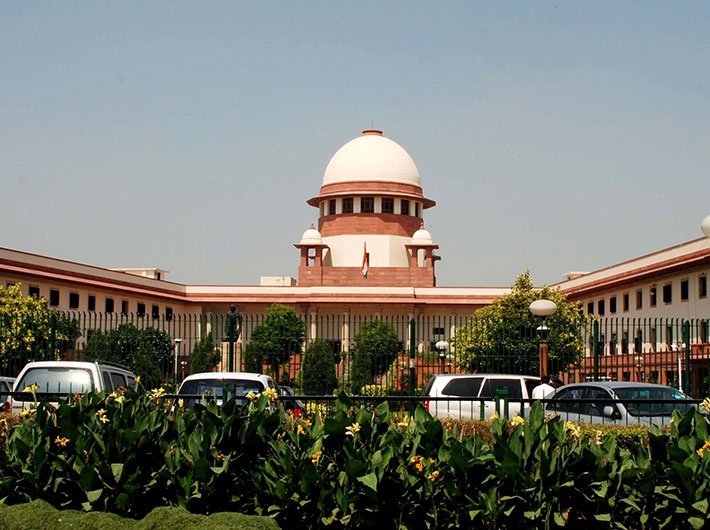Justice Kurian Joseph of the Supreme Court, in a letter written to the Chief Justice of India (CJI) Dipak Misra had sought for setting up of bench of seven senior most judges of the apex court. He had also asked the CJI to suo motu take up the matter of elevation of two names recommended by the Collegium, to the Supreme Court bench.
According to the Indian Express, Justice Joseph in his letter had said that “It is the first time in the history of this court where nothing is known as to what has happened to a recommendation after three months,” hence had sought the CJI’s intervention.
Collegium had in February recommended the names of Senior Advocate Indu Malhotra and Justice K M Joseph, Chief Justice of Uttarakhand High Court, for appointment as judges of the Supreme Court.
According to the settled law the Collegium sends the name to the government, and the latter can send back the recommended names to the Collegium once. But the government has to issue the warrants of appointment if the Collegium reiterates the names.
The system of judicial appointment has been specified in the constitution and has evolved over the years, prominently through three cases.
Constitutional Provisions
The Judges of the Supreme Court are appointed by the President under Article 124 (2), while the Judges of the High Courts are appointed by the President under Article 217 (1) of the Constitution. Art 124 (2) provides that the President shall hold consultation with such of the Judges of the Supreme Court and of the High Courts in the State as he/she may deem necessary for the purpose. Art 217 (1) provides that the President shall hold consultation with the Chief Justice of India, the Governor of the State, and in case of appointment of a Judge other than the Chief Justice, the Chief Justice of the High Court.
The transfer of Judges from one High Court to another High Court is made by the President after consultations with the Chief Justice of India under Article 222 (1) of the Constitution. The appointment of retired judges in Supreme Court is made under Article 128 and the appointment of retired Judges as sitting Judges of the High Courts can be made under Article 224-A of the Constitution.
Evolution through landmark cases
In 1981, the supreme court declared that the “primacy” of the CJI’s recommendation to the president can be refused for “cogent reasons”. The judgment also stated that the word ‘consultation’ was not to be taken to ‘concurrence’. This tilted the balance of power in favour of the executive, which got primacy over the judiciary in judicial appointments for the next 12 years.
However, in 1993 in the ‘second judges case’ the apex court while reversing its 1981 judgment changed the meaning of the word ‘consultation’ to imply ‘concurrence’. It ruled that the advice tendered by the CJI is binding on the president. However, the same judgment also made it mandatory for the CJI to consult two of his senior-most judges while making the recommendations, paving the way for the collegium system.
Later in 1998, the apex court ruled that the consultation process to be adopted by the CJI required consultation of “plurality of judges” and the sole opinion of the CJI did not constitute consultation process and he should consult collegium of four senior-most judges of the supreme court. If any two judges dissent, the CJI should not refer the name for appointment.
Through the last two cases, the supreme court in some way democratised the appointment procedure by allowing a voice of dissent, but at the same time monopolised the power of appointment in its own hand.
While the Collegium system came into final existence in 1998 and became established system of appointment of judges to higher judiciary, certain case of ‘wrong appointments’ and allegations of ‘lack of transparency’ led to the government setting up of National Judicial Appointments Commission (NJAC).
However, the Constitutional validity of both the Acts was challenged in the Supreme Court. The Supreme Court in October 2015 struck down these two enactments and has simultaneously revived the 'Collegium System'.
Subsequently, Supreme Court directed government to supplement the Memorandum of Procedure for appointment of Judges of Supreme Court and High Courts (MoPs) taking into account factors like eligibility, transparency in the appointment process, establishment of Secretariat and Complaint mechanism in consultation with Supreme Court Collegium/Chief Justice of India.
The MoPs are under finalisation in consultation with the Chief Justice of India and the tug-of-war between the executive and judiciary continues.
